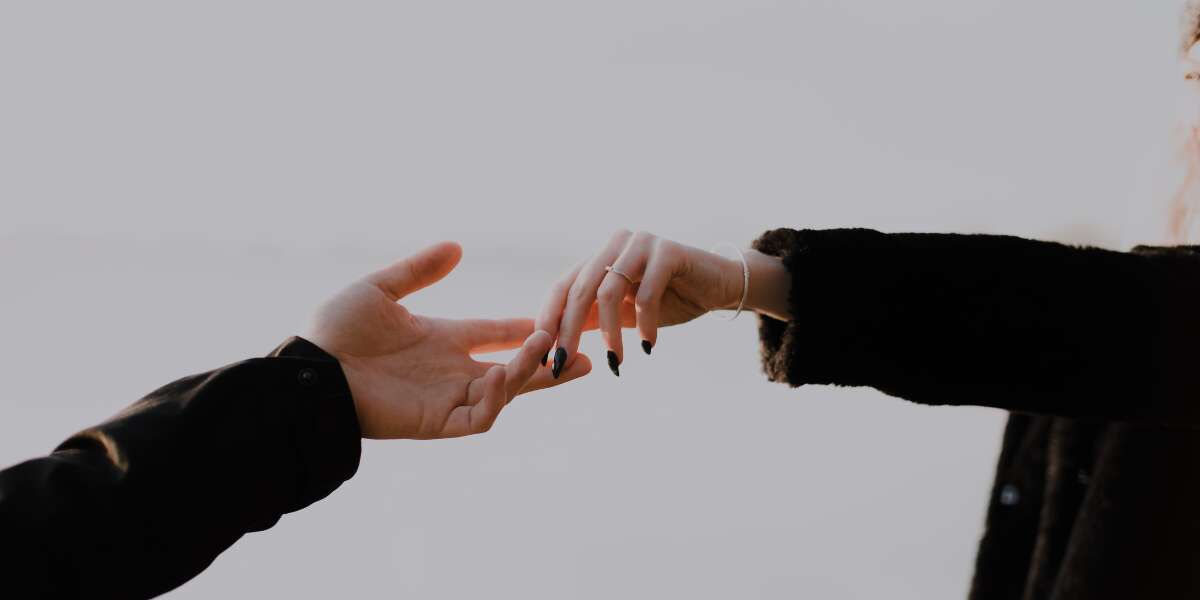Cultivating a healthy relationship with money can be a life-long journey. For me personally, the fear of financial insecurity used to be my deepest anxiety. At the same time, I’d use spending money (like many millennials, online shopping is my drug of choice) as a bandaid for stress, which would only make me anxious about my lack of financial security. How’s that for a vicious cycle?
In recent years, I’ve learned to put down the debit card and divorce my worth and feelings of safety from my bank account and investments and think of money as simply a tool. But, like those with our friends, families, or significant others, our relationship with money isn’t fixed; it’s something we constantly have to work at and reevaluate.
We’ve put together this guide to sorting out your relationship with money not as a one-time fix, but to give you some extra tools to keep in your financial wellbeing toolkit. We hope it helps!
Money and you
Is your relationship with money just another bad romance? Or have you formed a bond to go the distance?
Maybe you have parked it in the “friend zone” - nice for an occasional chat, but nothing serious is happening.
Whether we’re talking about your dating life or your finances, your relationship can be healthy or not so great. It can provide security or be a source of uncertainty. It can make you feel satisfied and ease stress or be anxiety-inducing. For any relationship to work you need honesty, transparency, and balance.
While you can block your ex, you can’t make money go away. So let’s sort out your relationship with money and set you on the right track for a successful lifelong partnership.
Why should I work on my money relationship?
You only benefit from having a good relationship with money. Aside from the obvious (and important) financial benefits, you stand to gain peace of mind. Here’s how.
Improve your health
Your financial wellness is a key part of your overall well-being. Money is a leading cause of stress.
A 2021 survey by the Financial Services Council found that:
77% of Kiwis under age 37 worry about money regularly
Over half said financial concerns affected their mental health and relationships
40% said their physical health was affected by financial stress
Learning to have a good relationship with money will alleviate financial stress, positively impacting your health.
Get off the emotional roller coaster
Money is an emotional topic! We go through highs - yay, I paid off a loan! - to lows - I’ll never have enough to feel secure.
Some people feel controlled by money, leading to cycles of bingeing, hoarding, or willful ignorance - all tied to guilt, shame, and fear. Some despise money for the limits it places on their life or despair that they can’t afford the same luxuries as their friends. Others may use money to flaunt their social standing or to make others envious.
The good news is you can break negative emotional ties to money and develop a healthy relationship with it.
Understand your habits
Money relationships have deep roots in our cultures, families, and childhood experiences. Some even say that our money habits are set by age seven.
Take a look back at your younger years and learn how it influences your relationship with money today. For instance, if your parents often argued over money, you’re likely to want to earn more so it isn’t an issue. If your sibling stole from your piggy bank, you might be more conscientious about keeping your money in a few different spots.
Take a minute and reflect on this. How does thinking about money make you feel? What does financial well-being look like for you? Knowing where you come from and what you want are big steps to sorting out your money relationship.
OK, so how do I create a healthy relationship with money?
We thought you’d never ask.
Here are our seven top tips for cultivating a positive money relationship:
1. Give it undivided attention.
Set aside time for a regular money date. Check in on your progress towards goals and adjust your budget. Treat yourself to something you enjoy while you do it (flowers, takeaways, whatever).
2. Show an interest.
You know your bestie’s birthday and favourite band. Likewise, show some interest and learn what you can about your money. Check out the BetterSaver blog, podcast, and favourite finance books to get started.
3. Show your appreciation.
Instead of thinking of how your finances limit you, turn it around - what has your money enabled you to do? Maybe it keeps you warm and fed, allows you to express yourself with fashion, or care for a loved one.
4. Give it a positive spin.
Stop telling yourself you’re bad with money. It becomes an excuse. Instead, acknowledge where you could improve. Turn “I can’t afford this” into “I choose not to spend on this.”
5. Check that your values match.
If you feel guilt for spending, it’s likely that your spending doesn’t align with your values. The trick is to budget for what is important to you, whatever that may be. You earned your money - you should enjoy it.
6. Practice forgiveness.
You’ve made mistakes, racked up some debts, and splurged when you really shouldn’t have. That is all in the past. Forgive yourself, adjust your behaviour, and move forward.
7. Stop comparing your relationship to others.
Your friends’ parents might fund their housing or buy their groceries while you don’t have that luxury. They may have different values than you. Get your own priorities straight and you do you.
It’s always a good idea to talk to a financial adviser. They can help you develop a healthy money strategy and keep you on track.
The trick is getting started
Developing a good relationship with money probably won’t happen overnight. Start with small steps. If you want to get fit, you don’t go to the gym six days in a row and expect instant results (if that’s you, sorry to burst your bubble). You start slow and build a steady habit, growing your abilities in time.
Sorting out your KiwiSaver is an easy first step to getting on solid footing with your finances. By making sure you are in the right fund, you start saving money in a way that will help you achieve your goals and align with your values.
You wouldn’t date someone who openly stood against what you advocate for, so why let your money do it? Your KiwiSaver fund is invested on your behalf, so you want to know what your dollars support. Unfortunately, it isn’t always crystal clear - so we have made it our job to make it so. The BetterSaver team does all the research to dig into where KiwiSaver funds are invested, what their performance has been like, and that their fees are fair.
We’re sort of like a matchmaker for KiwiSaver. Tell us about you, and we’ll match you up to the best KiwiSaver fund. It takes less than five minutes. When it comes to managing your money, we’re here for you every step of the way.

